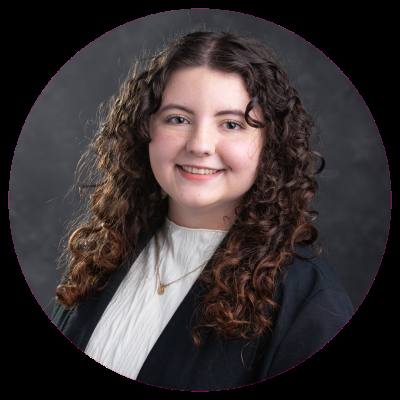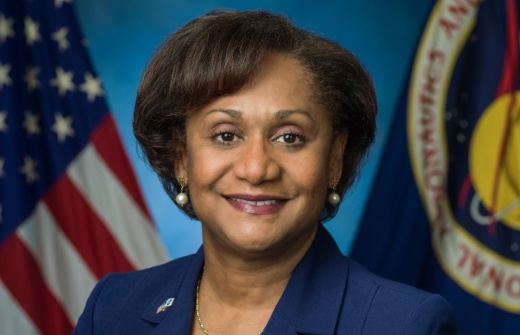WHAT IS YOUR VISION FOR JSC FOR THE NEXT FEW YEARS?
I am just so super excited about the Johnson Space Center—our future, where we’re going. My vision is really twofold. One is to maintain the excellence that we have provided and conducted in human spaceflight for now our 60th year as well as transforming and being a part of the creation of a space economy that’s happening in low Earth orbit. First, using the International Space Station, then with these new plans for having free-flying space stations that are commercially on as well as then activities at the moon. Over the course of the next decade, we will be doing a lot of activities at the moon and then also preparing to go to Mars. ... We’ve been working on our exploration goals for a number of years, especially here at Johnson Space Center, where we have responsibility for the Orion spacecraft. That is the spacecraft that will be on top of the Space Launch System rocket, and they both are now integrated at the pad at Kennedy Space Center for a test flight that will happen early summer. Then we will have our first landing on the moon since Apollo. ...
WHAT DOES IT MEAN TO YOU TO SERVE AS THE FIRST AFRICAN AMERICAN WOMAN DIRECTOR OF THE JOHNSON SPACE CENTER?
I started my career here over 30 years ago, and a lot has changed in terms of females and people of color being in positions of leadership. For me, it demonstrates that our country is a really great place, and being able to go from being a project engineer to being director of this entire center in that course of time is that when the opportunities came, I was prepared and took advantage of all the opportunities that I had. And now to be able to be here and be the director, it means a lot because I know that others can now look and they can say, ‘Well, if Vanessa could do that, then I can, too.’
HOW DID YOUR INTEREST IN SPACE EXPLORATION BEGIN, AND HOW DID YOU END UP JOINING NASA?
My brother was a ‘Star Trek’ Trekkie. I would watch with him, and I was saying, ‘Wow, that’s really great’ because ‘Star Trek,’ it was very diverse. These people were being beamed up and had all kinds of things to do with science fiction. I thought, ‘OK, well, it could be possible someday,’ but I never really thought that I would be working in space. I grew up in South Carolina; there’s not a space center nearby. It really wasn’t until I was working after I got a master’s degree in bioengineering and working for the Food and Drug Administration in Washington, D.C., and actually met someone that was from Texas, a native Houstonian. He asked me to marry him, and we decided that if we were going to do that we needed to move to Houston because of the cost of living, and then I had to find a job and begin my search of looking for positions, and that was how I actually found out that it was a perfect match between the skills that I had and being able to kind of work in in human spaceflight.
OUT OF THE MANY MISSIONS AND EXPLORATION THAT NASA HAS GONE ON, WHICH ONE HAS INSPIRED YOU THE MOST?
We’ve done a lot of really very interesting research in space. Some of the things that I personally was a part of, I think, probably resonate the most because doing experiments on astronauts and getting the data and understanding how the body works in space was certainly very fascinating. I actually had the opportunity when I was in the shuttle program to be a manager of shuttle missions and missions that actually assemble the space station. [It’s] super exciting because now I see the space station as it goes over our heads. It’s still there, and it’s orbiting, and it’s functioning, and it’s a real laboratory where work is being done. That’s inspiring to me. And then we’ve been, like I said, putting these plans together to go to the moon again, for over 15 years, at least in my career time. ... To be on the cusp of going to the moon again, it is super inspiring.
WHAT ADVICE DO YOU HAVE FOR WOMEN OR GIRLS WHO ARE LOOKING TO GO INTO INTO STEM-RELATED FIELDS?
I believe that STEM jobs are fun because that’s what I do, and I would love for them to know that if they have any desire to have any career in a STEM field, that they certainly should pursue it. ... I always encourage them to say if it’s your passion, if this is really what you want to do, don’t let anybody tell you you’re not good at this or that. Go for it. ...





